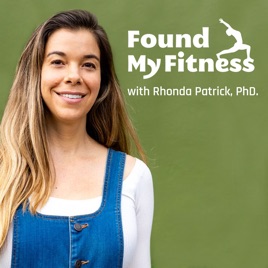
Advertise on podcast: FoundMyFitness
Rating
4.8 from
Country
This podcast has
85 episodes
Language
Publisher
Explicit
No
Date created
2014/02/10
Average duration
113 min.
Release period
56 days
Description
A podcast about health, science, nutrition, aging, and fitness.
Social media
Check FoundMyFitness social media presence
Podcast episodes
Check latest episodes from FoundMyFitness podcast
#085 Dr. Peter Attia on Mastering Longevity – Insights on Cancer Prevention, Heart Disease, and Aging
2023/12/27
Download the 9-Page "Cognitive Enhancement Blueprint"
Discover my premium podcast The Aliquot
Show notes are available by clicking here
Peter Attia, MD is a highly respected expert in preventive medicine, focused on the crucial subject of longevity and cardiovascular health. He's also the author of the NY Times best selling book Outlive - which I highly recommend if you have not read it already. Peter's philosophy transcends the conventional goal of merely extending lifespan; it's about enriching the quality of every year, ensuring that each stage of life is lived with optimal health and vitality.
In this episode, we discuss:
(00:07:36) Defining cardiovascular disease (00:09:43) Coronary plaque and fatality risk (00:11:09) What is cholesterol? (00:13:34) How ApoB predicts heart disease (00:21:34) Factors elevating ApoB (00:25:24) ApoB reference range explained (00:27:23) Does high ApoB cause cardiovascular disease (00:37:01) ApoB thresholds for ASCVD prevention (00:40:27) Dietary factors raising ApoB (00:39:33) Genetics of ApoB and LDL (00:53:24) Does low LDL increase cancer? (00:56:19) Cholesterol-lowering drugs (00:59:59) Statins, uses, and side effects (01:03:12) Are statins toxic to mitochondria? (01:09:56) Ubiquinol for statin-induced muscle soreness (01:11:09) How to train in zone 2 (01:17:09) Statins and neurodegenerative disease risk (01:21:54) Cholesterol synthesis in the brain (desmosterol role) (01:25:58) Statin alternatives – pros and cons (01:27:30) Ezetimibe (01:31:01) Bempedoic acid (01:36:49) Berberine for CVD Risk Reduction? (01:39:36) Muscle as a glucose sink (01:45:58) Chronic glucose toxicity and vascular impact (01:51:38) Hemoglobin A1C Levels and Mortality Data (01:55:35) 80/20 Zone 2/VO2 Max Training Protocol (02:02:12) Insights from VO2 max testing data (02:12:17) How obesity increases cancer risk (02:15:03) Cancer screening benefits and risks (02:20:47) Dr. Attia's recommended cancer screening age (02:28:54) Liquid biopsies for detecting cancer (02:34:48) CT scans, mammograms and radiation concerns (02:40:32) Menopause – hormonal shifts and health effects (02:45:13) Hormone replacement therapy (HRT) (02:58:57) Perimenopause diagnosis with hormone levels (03:02:04) HRT's impact on dementia, cancer, and heart disease risk (03:04:49) Estrogen's role in bone density (03:07:42) Vitamin D (03:16:24) Testosterone replacement for women's sexual function (03:18:47) HRT safety 10 years post-menopause (03:23:05) Treating low testosterone in men (03:29:53) TRT side effects and risks (03:32:33) Ways to reduce blood pressure (03:39:33) How to measure blood pressure (03:45:30) Peter's longevity optimization routines Become a FoundMyFitness premium member to get access to exclusive episodes, emails, live Q+A’s with Rhonda and more: https://www.foundmyfitness.com/premium
more
#084 The Longevity & Brain Benefits of Vigorous Exercise | Dr. Rhonda Patrick
2023/12/05
Download the 9-Page "Cognitive Enhancement Blueprint" companion guide at bdnfprotocols.com.
This episode challenges common perceptions about exercise, delving deep into the benefits of vigorous exercise for not just physical health but also brain function, aging, and even cancer prevention. It tackles fundamental questions, like what genetic and metabolic adaptations occur with vigorous exercise and how it can contribute to combating heart's age-related changes. We also unpack how these rigorous exercises affect glucose transport, mitochondrial health, and brain health at an intricate level. Lastly, it introduces practical applications like the Norwegian 4x4 interval training protocol, the benefits of "exercise snacks," and how to incorporate vigorous-intensity exercise into everyday life.
In this episode, I discuss:
(00:00) Introduction (04:34) What differentiates "vigorous" from "zone 2" training (08:34) Ties between VO2 max & life expectancy (11:55) Why zone 2 training doesn't guarantee VO2 max improvements (14:17) How to balance zone 2 training & vigorous-intensity workouts (16:17) Why the Norwegian 4x4 protocol may improve your VO2 max (19:35) Evidence-based methods to estimate VO2 max outside a lab. (22:33) What it takes to reverse 20 years of heart aging: a two-year protocol (28:24) HIIT and type 2 diabetes – how vigorous exercise can reduce risk. (29:38) The mitochondria argument: HIIT vs. Zone 2 – which intensity is better? (32:09) Rethinking the 80-20 rule for everyday exercisers (less zone 2, more effort) (35:18) The role of high-intensity workouts in enhancing mitophagy (38:03) Why lactate accumulation from higher training intensity benefits the brain (40:28) Why the "glucose sparing" effect of lactate benefits brain injury and aging (43:26) The unique BDNF benefits of high-intensity exercise: the lactate advantage (44:42) The angiogenic effects of VEGF on the blood-brain barrier (in response to lactate) (46:58) The greater the exercise intensity, the greater the myokine release (49:48) How physical activity affects death risk in breast & colorectal cancer survivors (50:56) How vigorous aerobic exercise kills circulating tumor cells (52:36) Why exercise reduces depression and neurotoxicity (kynurenine mechanism) (54:13) The surprising power of "exercise snacks" against mortality (1:01:36) Download "The Cognitive Enhancement Blueprint" at bdnfprotocols.com Watch this episode on YouTube
Show notes are available by clicking here
Get the latest distilled information straight to your inbox several times per month: https://www.foundmyfitness.com/newsletter
Become a FoundMyFitness premium member to get access to exclusive episodes, emails, live Q+A’s with Rhonda and more: https://www.foundmyfitness.com/premium
Learn more about our premium podcast, The Aliquot: https://www.foundmyfitness.com/aliquot
more
#083 How Vitamin D, Omega-3s, & Exercise May Increase Longevity | Dr. Rhonda Patrick
2023/11/10
This episode features Rhonda Patrick, Ph.D., and was originally recorded for the Institute for Functional Medicine's podcast, 'Pathways to Wellbeing.' This episode outlines a series of fundamental tactics you can start applying immediately to enhance cellular health, protect the nervous system, elevate mood, reduce inflammation, promote muscle and bone function, and help prevent chronic disease.
In this episode, I discuss:
(00:00) Introduction (01:04) Vitamin D deficiency — risks, why it's so common, & correcting with supplementation (08:20) Magnesium's critical role in DNA repair & synthesis (11:49) The best dietary sources of magnesium (13:05) Magnesium supplements: Glycinate, malate, dioxide, & citrate (14:14) Exercise staves off age-related disease (14:52) How genetic SNPs can affect vitamin D deficiency risk (20:09) Low omega-3 intake from seafood is a top-6 preventable cause of death (22:22) Why ALA's conversion into EPA & DHA is inefficient (25:15) Omega-3 index: Optimal levels & ties to increased life expectancy (28:27) How omega-3s reduce inflammation, a key driver of aging (30:39) Omega-3s protect against muscle disuse atrophy (31:38) Why avoiding fish during pregnancy is a huge mistake (34:02) Omega-3s are a low-hanging fruit for improving cardiovascular & brain health (35:46) What to look for when choosing an omega-3 supplement (39:57) Hormesis: Why intermittent stressors are beneficial (46:14) How to choose an exercise regimen (47:09) “Exercise snacks” reduce all-cause & cancer-related mortality (49:24) Brain benefits of lactate from vigorous exercise (52:23) How blood flow generated from aerobic exercise kills circulating tumor cells (54:30) Rhonda's workout regimen (55:38) HIIT ameliorates adverse effects of sleep deprivation (58:32) Exercise is the best longevity "drug" Watch this episode on YouTube
Show notes are available by clicking here
Get the latest distilled information straight to your inbox several times per month: https://www.foundmyfitness.com/newsletter
Become a FoundMyFitness premium member to get access to exclusive episodes, emails, live Q+A’s with Rhonda and more: https://www.foundmyfitness.com/premium
Learn more about the premium podcast The Aliquot: https://www.foundmyfitness.com/aliquot
more
#082 The Science of Vigorous Exercise — Should We Train Hard or Train Long? | Martin Gibala, Ph.D.
2023/09/19
Dr. Martin Gibala is a muscle physiologist, professor, and kinesiology department chair at McMaster University in Hamilton, Ontario, Canada. He is best known for pioneering research on the health benefits of high-intensity interval training (HIIT) and his profound understanding of HIIT's physiological mechanisms. He is a co-author of the book "The One-Minute Workout."
In this episode, we discuss:
(00:00) Introduction (11:00) What is high-intensity training? (11:53) Zone 2 vs. HIIT for VO2 max — which is better? (13:22) The vital role of vigorous exercise (14:40) Why VO2 max matters for longevity (17:45) Why athletes vs. exercisers benefit from different intensity distributions (22:09) Measuring maximum heart rate and VO2 max (30:31) How the heart adapts to HIIT to increase VO2 max (35:47) Why vigorous exercise accelerates mitochondrial adaptation (40:06) Enhancing fat oxidation and mitochondrial growth with vigorous exercise (44:22) How intensive exercise boosts fat breakdown (45:56) Is high-intensity exercise better for autophagy than fasting? (55:15) Exercise snacks (57:55) Why 'choosing the stairs' reduces early death (VILPA study) (1:00:39) Protocol for VO2 max (1:05:50) The effect of HIIT on muscle fiber types (1:10:18) How aging effects muscle fibers (1:14:09) Does high-intensity training produce an "afterburn effect?" (1:16:13) Why vigorous workouts are better for BDNF and cognition (1:23:15) Anti-metastatic cancer effects (1:50:23) Wingate training vs. reHIIT — a comparison of protocols (1:55:38) Perceived exertion vs. HRmax (1:59:23) Interval walking for people with type 2 diabetes (2:01:06) Contraindications of HIIT (2:05:06) Why preconditioning reduces risks from exercise (2:10:44) Can resistance training be a type of aerobic exercise? (2:16:24) Does cardio and strength training interfere with each other? (2:18:45) How many minutes per week of high-intensity training? (2:26:58) Are there sex differences and misconceptions in high-intensity training, for women? (2:27:42) Should post-menopausal women do H.I.I.T.? (2:27:47) Does intense exercise raise cortisol? (2:34:16) Bone density and osteoarthritis (2:36:40) Atrial fibrillation risk (2:39:20) Hypoxic training and blood flow restriction (2:40:45) Tips for training with joint issues Watch this episode on YouTube
Show notes are available by clicking here
Join over 300,000 people and get the latest distilled information straight to your inbox several times per month: https://www.foundmyfitness.com/newsletter
Become a FoundMyFitness premium member to get access to exclusive episodes, emails, live Q+A’s with Rhonda and more: https://www.foundmyfitness.com/premium
Learn more about the premium podcast The Aliquot: https://www.foundmyfitness.com/aliquot
more
#081 The Anabolic Potential of Omega-3 Fatty Acids | Chris McGlory, PhD
2023/07/03
Dr. Chris McGlory is an assistant professor at Queen's University in Kingston, Ontario, Canada. Known for his work in the field of muscle physiology and aging, Dr. McGlory's research focuses on elucidating the molecular mechanisms underlying muscle protein synthesis and degradation, with a particular emphasis on the roles that omega-3 fatty acids play in maintaining muscle health in older adults.
In this episode, we discuss:
(00:00) Introduction (05:50) Start of interview (13:03) Why atrophy is worse for the old than the young (15:23) Can dietary protein prevent atrophy? (17:35) Why reduced movement can insidiously mimic short-term immobilization (22:51) The disability threshold — when atrophy may actually be deadly (24:58) Does high-dose omega-3 hold the key to fighting atrophy? (5g/day) (28:35) Does omega-3 help muscle respond more optimally to low protein? (41:37) Why omega-3 must be preloaded for 4 to 6 weeks (44:20) Why omega-3 trials have conflicting results (50:16) Does omega-3 enhance strength? (52:42) Sex differences in gaining mass and strength (54:46) Improvements in gait speed and balance (muscle performance / physical performance battery) (55:49) How to act on mixed evidence — and should we? (58:17) Why omega-3 may reduce frailty in old age (1:01:59) Why the anabolic mechanisms are counterintuitive (going beyond the canonical anti-inflammatory role of omega-3) (1:07:42) Do omega-3s boost tired, dysfunctional mitochondria? (1:15:16) Why we need an "omega-3 index" for muscle (1:18:52) Why the inflammation from cancer wastes muscle (1:20:38) Does omega-3 reduce atrophy from cancer cachexia? Watch this episode on YouTube
Show notes are available by clicking here
Join over 300,000 people and get the latest distilled information straight to your inbox several times per month: https://www.foundmyfitness.com/newsletter
Become a FoundMyFitness premium member to get access to exclusive episodes, emails, live Q+A’s with Rhonda and more: https://www.foundmyfitness.com/premium
Learn more about the premium podcast The Aliquot: https://www.foundmyfitness.com/aliquot
more
#080 How Heat Therapy Improves Slow Wave Sleep
2023/05/30
Heat therapy, such as using a sauna or soaking in a hot bath, may significantly improve your slow wave sleep. My latest episode delves into the fascinating intersection between exercise and passive body heating and elucidates how high energy expenditure exercise and heat exposure share nuanced mechanisms in sleep regulation. Some key aspects explored include:
The surprising role of the immune system in regulating sleep through somnogenic cytokines, immune signals like IL-1B and TNF-alpha, released in response to heat stress and exercise. The interconnected nature of thermoregulation and sleep, particularly in the brain, which highlights the importance of overlapping sleep regulation and heat loss processes. This involves warm-sensing preoptic area neurons in the preoptic area of the hypothalamus, a region known to play a crucial role in sleep regulation. The intricate, bidirectional relationship between growth hormone (GH) and slow-wave sleep (SWS). With the majority of daily GH secretion occurring during the initial phase of SWS, stimulants of SWS, such as heat exposure, can result in enhanced GH secretion, establishing a strong connection between GH and sleep regulation. The varying influence of heat on growth hormone, ranging from doubling after two 20-minute sauna sessions at 80°C, to increasing its circulation up to 16-fold after two one-hour sauna sessions at 80°C. These findings highlight the potential for heat therapy and exercise with a high rate of energy expenditure to modulate slow wave sleep through the interconnected nature of thermoregulation, immunity, exercise, and hormones. By understanding and harnessing these links, individuals can potentially enhance their sleep quality and overall health and well-being.
In this episode, I discuss:
(00:00) - Introduction (01:06) - Increasing pre-sleep tiredness (02:06) - Effects of exercise (04:09) - How the immune system regulates sleep (05:07) - What heat and exercise have in common (06:39) - Hormonal effects of heat (06:59) - Growth hormone (09:26) - Prolactin and sleep onset (10:39) - Effect of sexual activity (12:08) - Overlap in the brain (thermoregulation vs. sleep) (12:46) - Heat protocols and tactics Watch this episode on YouTube
Show notes are available by clicking here
Join over 300,000 people and get the latest distilled information straight to your inbox several times per month: https://www.foundmyfitness.com/newsletter
Become a FoundMyFitness premium member to get access to exclusive episodes, emails, live Q+A’s with Rhonda and more: https://www.foundmyfitness.com/premium
Learn more about the premium podcast The Aliquot: https://www.foundmyfitness.com/aliquot
more
#079 Blood-Brain Barrier Dysfunction in Alzheimer’s Disease and Dementia | Axel Montagne, Ph.D.
2023/02/28
Dr. Axel Montagne is a chancellor's fellow and group leader at the UK Dementia Research Institute at the University of Edinburgh Centre for Clinical Brain Sciences. His group aims to understand how, when, and where critical components of the blood-brain barrier become dysfunctional preceding dementia and in the earliest stages of age-related cognitive decline. With this knowledge, they hope to develop precise treatments targeting brain vasculature to protect brain function.
More importantly his work, and that of his colleagues, provide a critical lens through which to view the contributions of vascular dysfunction (or, conversely, vascular health – if we choose to preserve it) as a critical common thread in dementia and neurodegeneration.
In this episode, we discuss:
(00:00) Introduction to Dr. Axel Montagne (11:44) What dementias have in common (12:42) The importance of preserving small blood vessels (in the brain) (13:38) Changes in the blood-brain barrier in aging that cause "leaking" (15:11) Predicting cognitive decline early with biomarkers – an opportunity for intervention? (16:32) Why targeting amyloid isn’t enough (18:54) The impact of the APOE4 genotype on brain vasculature (24:19) The cause of white matter damage in the brain (33:47) Why the loss of omega-3 transport affects pericytes (35:25) The role of exercise in prevention of blood-brain barrier dysfunction (35:45) Why high heart rates during exercise preserve brain function (36:49) The role of exercise in preserving vision health (40:17) Why leaky vessels damage myelin and the brain (45:31) Can you have more than one type of dementia? (47:54) Does the breakdown of the blood-brain barrier cause “type 3 diabetes"? (54:03) Why omega-3 may prevent detachment of pericytes (1:14:35) Why a hepatitis drug restored cognition in APOE4 mice (1:19:39) Why blood-brain barrier disruption results in the accumulation of amyloid-beta (1:25:14) Why lifetime hypertension increases dementia risk (1:37:13) Effects of obesity on blood-brain barrier leakage Watch this episode on YouTube
Show notes are available by clicking here
Join over 300,000 people and get the latest distilled information straight to your inbox several times per month: https://www.foundmyfitness.com/newsletter
Become a FoundMyFitness premium member to get access to exclusive episodes, emails, live Q+A’s with Rhonda and more: https://www.foundmyfitness.com/premium
Learn more about the premium podcast The Aliquot: https://www.foundmyfitness.com/aliquot
more
#078 Resistance training for time efficiency, body composition, and maximum hypertrophy | Brad Schoenfeld, Ph.D.
2022/12/06
Dr. Brad Schoenfeld is a professor at Lehman College in the Bronx, in New York City. His research primarily focuses on muscle adaptations to strength training, muscle hypertrophy. Publishing over 300 studies in the field of exercise and sports nutrition as a scientist, Brad began his career as a competitive bodybuilder and personal trainer.
In this episode, we discuss:
(00:00) Introduction to Dr. Brad Schoenfeld (05:26) Why should we lift weights? (06:56) Why building bone matters (11:33) How to lift in old age (13:45) Why to lift while young (especially women) (16:21) Should children lift weights? (17:05) Does lifting stunt growth? (19:48) How to change body composition (27:22) Protein requirements (29:19) How to calculate protein needs (36:54) Protein per meal - what's the right amount? (38:18) Does time-restricted eating undermine hypertrophy? (43:19) Anabolic window: myths vs. reality (46:15) Total daily protein intake (54:49) Why aging affects muscle power (loss of type II fibers) (57:52) Power training vs. strength (59:20) Benefits of explosive power training (fall prevention) (1:03:18) How to power train with plyometrics (1:03:58) Training to failure (is it important?) (1:09:59) Rest in between sets (is it needed?) (1:11:12) Number of sets per week (1:22:31) Tips for recovery (1:33:41) Should you get sore from exercise? (1:36:47) What can you do for soreness? (without blunting hypertrophy) (1:40:16) Does aerobic exercise undermine resistance training? (1:44:46) Resistance training for endurance athletes (1:46:33) Can stretching increase muscle growth? (1:51:06) Is yoga a type of resistance training? (1:53:37) Blood-flow restriction training (1:58:37) What is Brad's routine? Watch this episode on YouTube
Show notes are available by clicking here
Join over 300,000 people and get the latest distilled information straight to your inbox weekly: https://www.foundmyfitness.com/newsletter
Become a FoundMyFitness premium member to get access to exclusive episodes, emails, live Q+A’s with Rhonda and more: https://www.foundmyfitness.com/premium
Learn more about the premium podcast The Aliquot:
https://www.foundmyfitness.com/aliquot
more
#077 Rewriting genomes to eradicate disease and aging | Dr. George Church
2022/08/24
George Church, Ph.D. is a professor of genetics at Harvard Medical School and of health sciences and technology at both Harvard and the Massachusetts Institute of Technology. Dr. Church played an instrumental role in the Human Genome Project and is widely recognized as one of the premier scientists in the fields of gene editing technology and synthetic biology.
In this episode, we discuss:
(00:00) Introduction to Dr. George Church (07:13) History of the Human Genome Project (15:20) Manufacturing cell phones (with biology) (17:34) Genome Project-Write (20:03) Writing a human Y chromosome (from scratch) (20:48) What if you could eliminate viral disease? (22:51) De-extinction and reinstating lost traits and genes (27:06) The Vertebrate Genomes Project (29:47) AlphaFold and other AI tools (41:27) CRISPR vs. Base Editing (emerging tools of genetic engineering) (49:40) Why multiplex editing will change the world (52:18) Molecular flight recorder (53:31) Preventing viral spillover and enhancing livestock (57:40) PCSK9 gene therapy for cholesterol (1:00:30) Is aging an evolved program? (1:05:21) Treating aging with a combination gene treatment (1:09:04) Does animal research help us understand human aging? (1:11:40) Human organoids as a model and therapeutic (1:13:34) Could engineered transplant organs become better than the originals? (1:16:17) Embryo editing controversy (1:28:41) Gene editing for space travel (1:30:40) Can synthetic biology alleviate poverty? (1:34:07) Is in vitro fertilization and embryo selection practically similar to editing? (1:39:12) The occasional cost of brilliance (1:45:45) Eradicating disease with Gene Drive (1:48:55) Technologies to solve Lyme disease (1:51:57) Dr. Church's experience with narcolepsy as a bridge to creative insights (2:00:42) Why George encoded his book in DNA Watch this episode on YouTube
Show notes are available by clicking here
Join over 300,000 people and get the latest distilled information straight to your inbox weekly: https://www.foundmyfitness.com/newsletter
Become a FoundMyFitness premium member to get access to exclusive episodes, emails, live Q+A’s with Rhonda and more: https://www.foundmyfitness.com/premium
Learn more about the premium podcast The Aliquot:
https://www.foundmyfitness.com/aliquot
more
#076 Building Muscle with Resistance Exercise and Reassessing Protein Intake | Stuart Phillips, PhD
2022/06/29
Stuart Phillips, PhD, is a professor of kinesiology at McMaster University in Hamilton, Ontario, Canada, where he also serves as the director of the Physical Activity Centre of Excellence. His research centers on the roles exercise and nutrition play in influencing human skeletal muscle protein turnover and how these lifestyle factors influence body composition, especially as we age.
In this episode, we discuss:
(00:00) Introduction to Dr. Stuart Phillips (07:16) Why muscle is important for longevity (14:34) Is the importance of muscle mass (per se) overstated? (16:48) Is the RDA on protein too low? (19:03) Minimum vs. optimal protein intake (for athletes) (19:29) Why older adults need more protein (24:52) Caloric restriction vs. higher protein for aging (28:04) What is a catabolic crisis? (29:40) Effects of space flight on muscle (36:16) Practical tips for protein intake (39:34) Protein timing and the anabolic window (41:27) Most important factors for hypertrophy (43:57) Should we supplement leucine? (45:46) Does plant protein support hypertrophy? (56:30) Causes of anabolic resistance (58:22) What types of exercise and how much? (01:06:56) Protein and rest as tools for recovery (01:08:14) Mechanisms of muscle protein synthesis and breakdown (01:08:31) Does rapamycin inhibit hypertrophy? (01:13:07) What is Dr. Phillips doing to age well? (01:15:25) Hormonal responses to exercise (01:17:09) Sex differences in hypertrophy (01:19:38) Effect of menopause on muscle (01:20:03) Do testosterone boosters work? (01:21:56) Does growth hormone improve muscle? (01:26:30) Androgen replacement therapy (benefits vs. drawbacks) (01:31:17) Mental health benefits of exercise (01:31:54) Anti-catabolic effects of heat (01:38:19) Molecular causes of sarcopenia (01:42:35) Anti-catabolic effects of omega-3 (01:48:57) Brain and muscle effects of creatine Watch this episode on YouTube
Show notes and transcript
Join over 300,000 people and get the latest distilled information straight to your inbox weekly: https://www.foundmyfitness.com/newsletter
Become a FoundMyFitness premium member to get access to exclusive episodes, emails, live Q+A’s with Rhonda and more: https://www.foundmyfitness.com/crowdsponsor
more
#075 Intestinal Permeability: the Bacterial link to Aging, Brain Barrier Dysfunction & Metabolic Disorder
2022/05/31
The intestinal barrier serves as a gatekeeper to the human body. The loss of the health and integrity of this barrier influences multiple aspects of human health – including cardiometabolic function, neurological health, behavior, and more – in surprising and unexpected ways. One of these ways involves lipopolysaccharide, or LPS, a bacterial product that arises in the intestine, and its interaction with far distal tissues and organs via the induction of immune mediators.
Dr. Rhonda Patrick was the keynote speaker for the Metabolic Health Summit, held May 5 – 8, 2022, in Santa Barbara, California. Her presentation described the role that intestinal permeability and bacterial products play in aging, inflammation, and chronic disease.
In this episode, we discuss:
(00:00) Introduction (08:12) Atherosclerosis (13:49) Brain (16:07) Circulating LPS and behavior (19:05) Toll-like receptors and inflammation (24:00) Factors that affect intestinal permeability (30:10) Alcohol (32:07) Gluten (35:21) Butyrate and dietary fiber (37:48) Dietary fat (42:21) Biomarkers of intestinal permeability (43:11) Omega-3 fatty acids (50:02) Q&A Show notes and video
LEARN MORE: Coinciding with this release, you can now find a variety of deep resources on the FoundMyFitness website for all of the topics covered in this episode.
Learn about the blood-brain barrier
Learn about intestinal permeability
Learn about toll-like receptors
Learn about cerebral small vessel disease
SUPPORT THE CHANNEL: Many of these magnificent resources exist directly as a result of our premium members. As a premium member, listeners get access to our exclusive podcast The Aliquot, monthly Q&As, a special summary of scientific research every other week called the Science Digest, and more. Sign up to become a premium member and nurture the existence of the FoundMyFitness platform.
Become a member
more
#074 Dr. Dominic D'Agostino on Developing a Well-Designed Ketogenic Diet and Harnessing Its Benefits
2022/04/28
Dr. Dominic ("Dom") D'Agostino is an expert on a wide range of topics related to metabolic health, ketosis, and ketogenic diets. As one of the world's foremost experts on the ketogenic diet, Dom has personally practiced some variation of ketogenic diet for over a decade, bringing a substantial amount of practical experience along with his anecdotes from human and animal research.
In this episode, we discuss:
(00:00) Introduction to Dr. Dominic D'Agostino (04:59) What is "keto” (and what it is not) (08:42) Types of ketogenic diets (15:27) Lifestyle Ketogenic Diet (26:36) Biomarkers and hyperlipidemia (29:41) Micronutrients and Supplementation (33:40) Exogenous Ketones (55:48) Optimal blood concentration of ketones (Dom's pick) (01:13:31) Exercise performance and anti-catabolic effects (01:34:37) Brain and Memory (01:42:39) Intermittent Fasting (01:51:43) Neurodegenerative Diseases (01:58:05) Migraines (02:04:17) Autoimmune diseases (02:06:15) Cancer (02:22:03) Carnivore diet (02:28:22) Dom's lifestyle habits (02:31:46) Measuring ketones Watch this episode on YouTube
If you’re interested in learning more, you can read the full show notes
Join over 300,000 people and get the latest distilled information straight to your inbox weekly: https://www.foundmyfitness.com/newsletter
Become a FoundMyFitness premium member to get access to exclusive episodes, emails, live Q+A’s with Rhonda and more: https://www.foundmyfitness.com/crowdsponsor
more
Podcast reviews
Read FoundMyFitness podcast reviews
Lienna M
2023/09/20
My new favorite
I recently discovered the Found my Fitness Podcast and it quickly became my new favorite podcast. As a health care provider myself, I always learn new...
more
BP Writer
2023/04/04
Fantastic content, great guests, gems galore!
Came across the Found My Fitness podcast and am loving it! Especially loved the episode with Dr. Axel Montagne about blood-brain barrier dysfunction i...
more
itsjusttu
2023/07/04
Needs Editing
As a commuter I listen to a lot of podcasts and the audio quality and conversational rhythm have become as important as the content itself. The host ...
more
Skoczenk1
2023/02/23
FoundMyFitness
The best podcast available. Dr. Rhonda Patrick is smart as a whip without the ego. I love her podcasts and approach to science.: It is accessible and ...
more
Bamashan
2023/01/12
Love the content
I so appreciate Dr. Patrick! I’ve been following her for years and find the information she provides to be so useful. If health is a priority or even ...
more
stayseegrl
2022/10/30
Life changing information
This is one of my ‘go to’ podcasts. The information presented is thoroughly researched and explained on a high level (science and MD talk) while also ...
more
sashafern
2022/12/19
Good— but biased
As a medical professional, I have a hard time with Podcasts like this because it’s really difficult for the listener to know what biases the host hold...
more
JT 1911
2022/08/29
One of the best podcasts. Period.
Rating this podcast lower than 5 stars is directly correlated to the rater’s IQ being so low, that if multiplied by 5, the person would still drool on...
more
Sevenspine
2022/08/06
Great show but…
Rhonda is a very talented and intelligent woman that deserves all the praise in the world. However she lost me when she promoted the vaccines.
JJCCTT130
2022/08/07
Let guests speakers SPEAK!!!
She interrupts way too much. Mrs know it all!! Please learn from Dr. Huberman.
She just goes on a tangent and don’t let people speak.
S P E A K ...
more
Podcast sponsorship advertising
Start advertising on FoundMyFitness & sponsor relevant audience podcasts
You may also like these medicine Podcasts
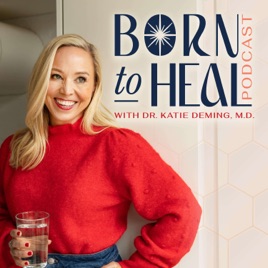
5
87
38
Born to Heal: Holistic Healing for Optimal Health
Dr. Katie Deming, M.D. | Conscious Oncologist
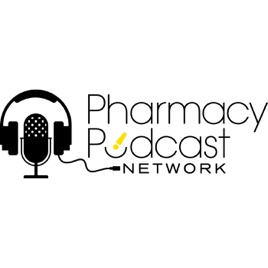
4.6
157
1099
Pharmacy Podcast Network
Pharmacy Podcast Network
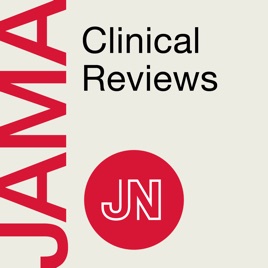
4.5
412
353
JAMA Clinical Reviews
JAMA Network
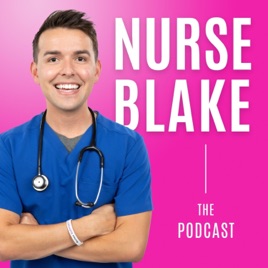
4.9
497
41
The Nurse Blake Podcast
Nurse Blake

5
2
44
ESA Explores
European Space Agency
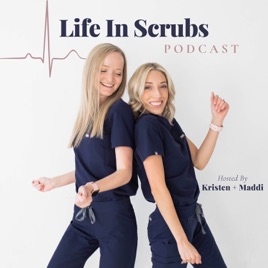
4.9
129
66
Life In Scrubs
Life In Scrubs
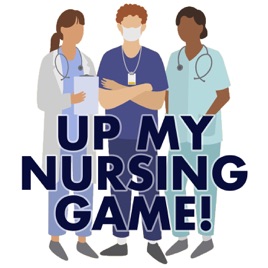
4.8
145
70
Up My Nursing Game
Annie
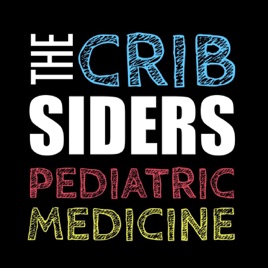
4.8
271
111
The Cribsiders
The Cribsiders
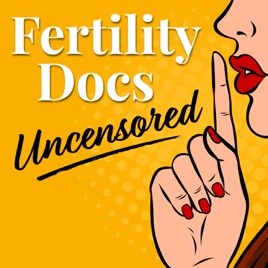
4.8
210
209
Fertility Docs Uncensored
Various
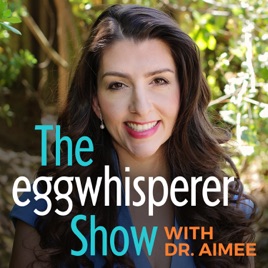
4.6
205
1072
The Egg Whisperer Show
Dr. Aimee Eyvazzadeh




